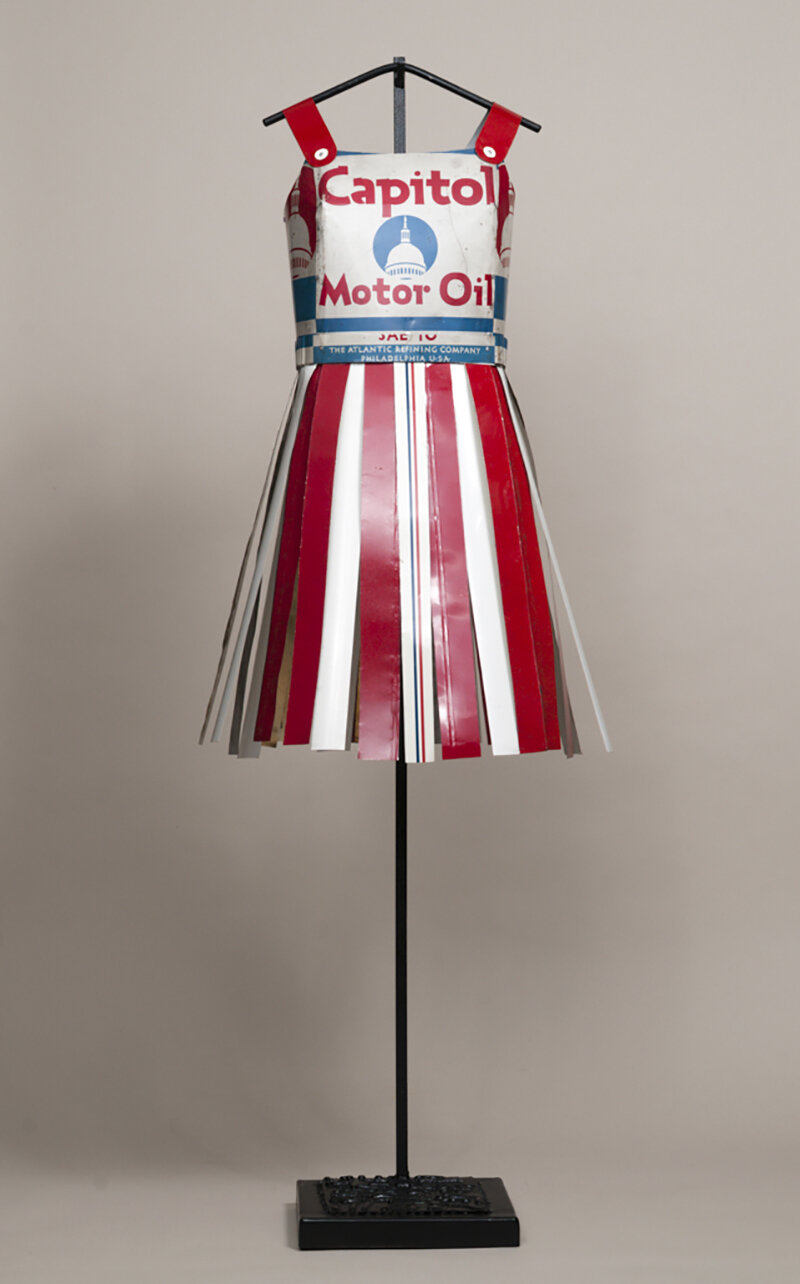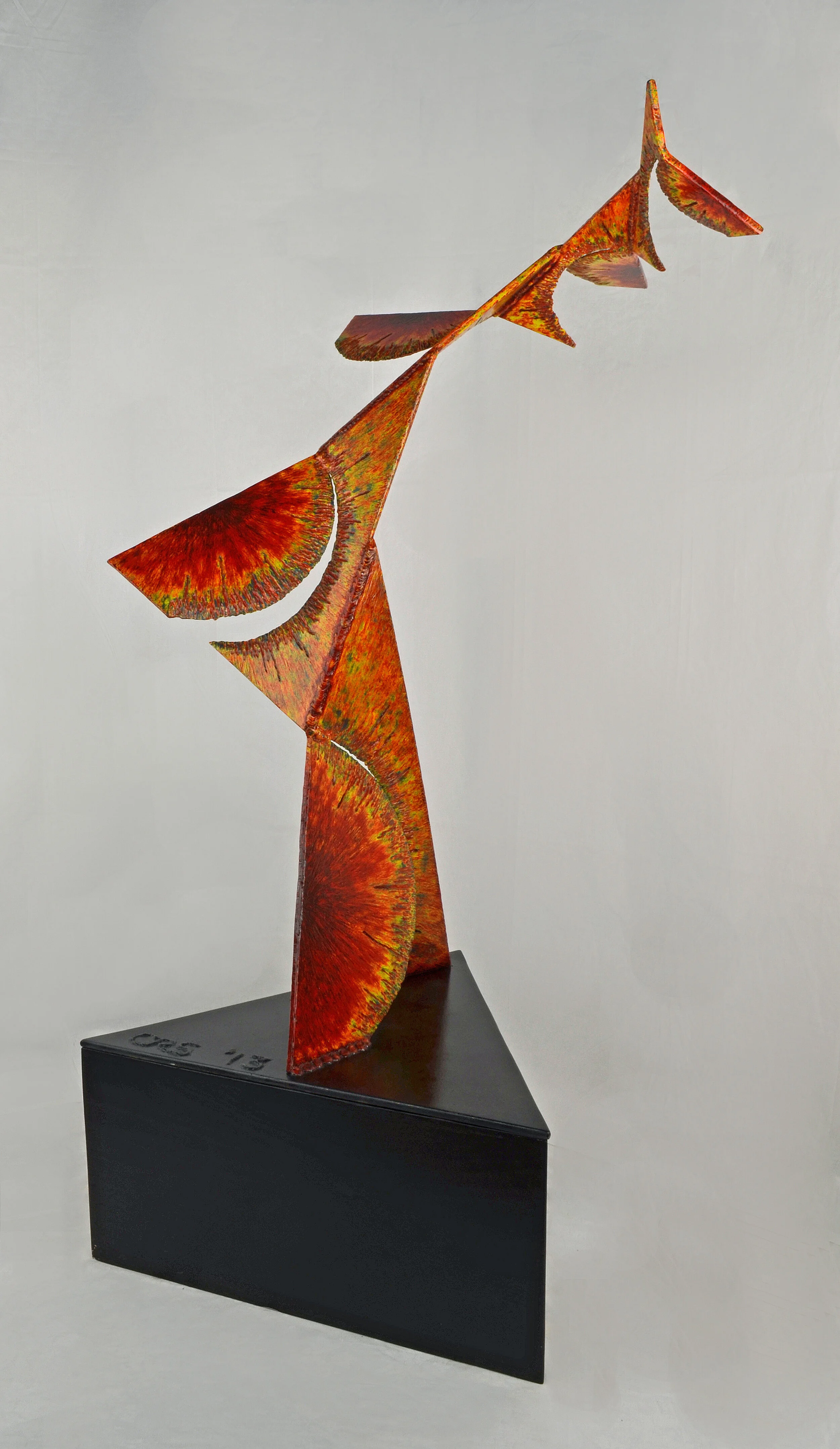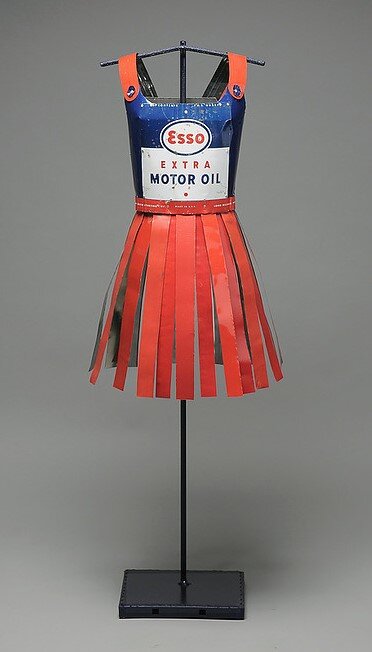Washingtonian Sculptors | 2017
Washingtonian sculptors, Donna McCullough and Craig Schaffer come together this September at Artist’s Proof to exhibit their exploration of metal sculptures over the last two decades in Washington D.C. In this two-person exhibition, McCullough and Schaffer will highlight the multivalent nature of the metallic medium. Coinciding with the Georgetown Bookhill Annual Fall Art Walk, join us Saturday, September 16, 2017, from 5 – 8 pm for the opening reception which includes a workshop and lecture by the artists.
Donna McCullough‘s Garden Girls series, which is comprised of mesh, steel, and bronze dress forms, coaxes the audience to re-examine their perceptions of the cultural icons, gender stereotypes and the nature of these unyielding metals. Intrigued by the dichotomy between perception and reality, her medium becomes symbolic, where the qualities of metal define not just itself but the object it eventually is molded to become. McCullough employs a juxtaposition of extremes: such as lightness and gravity, suppleness, and intransigence, to convey feminine sensibilities. The duplicitous nature of bronze or mesh, which can be manipulated to appear feminine and soft while actually maintaining its strength and rigidity – the dresses are at once both elegant and imposing.
Craig Schaffer’s bronze series, Welded Fractals, represents the dynamic and powerful meditations on the reality of geometric repetition in natural world and life. Featured in the 2017 Morgan Stanley Garden at the Royal Horticultural Society Chelsea Flower Show, which was designed by Chris Beardshaw and won Best Show and the Silver Gilt medal, Craig’s Sculptures explore the shapes created by the branching of plants to catch the sunlight, the convoluted unfurling of clouds, the formation, and fracturing of mountains from the forces within the earth. Because of the nonlinear, reflexive nature of physical processes, they tend to create spiral forms. Schaffer’s sculptures instead of illustrating any specific phenomenon, grow in the same reflexive manner as real complex systems. Currently, Schaffer maintains two studios: one in Washington, D.C and the other in Pietrasanta, Italy.


